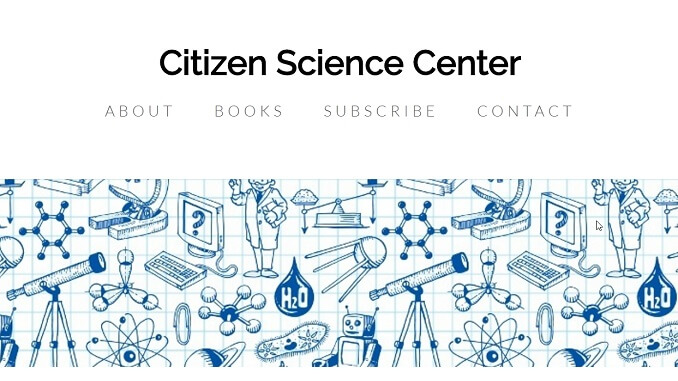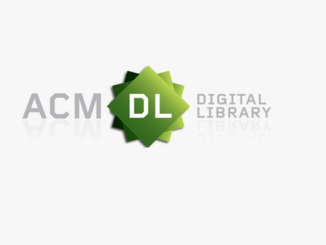
Citizen science games: the ultimate list
This week, by request: a huge list of citizen science games you can play and enjoy while contributing to the greater good. Go have fun!
Astro Drone – Created by the European Space Agency, fly your Parrot AR drone in virtual space and compare yourself with real-life astronauts. Data from your successful flights will be used to train robots on how to navigate their environment.
Website: http://www.astrodrone.org/.
iTunes: https://itunes.apple.com/us/app/astro-drone/id597477649?ls=1&mt=8.
Android: https://play.google.com/store/apps/details?id=eu.rwb.spacegame
Apetopia – Run over a landscape and then choose the door with the colour that best matches the sky at that moment. Collect coins and avoid obstacles too. The game helps determine perceived color differences; player choices are used to model better color metrics.
Website: http://colors.htw-berlin.de
Beat the Bots – Are you smarter than a spambot? VouchSafe has built an anti-spam program that uses the way humans think to try to outsmart spammers. Draw a line with your mouse to join an object to its best match, or circle the object that doesn’t belong. Yeah, okay, this isn’t really citizen science, but defeating spam is definitely for the greater good, don’t you think?
Facebook: https://apps.facebook.com/beatthebots/
Cell Slider – Join the effort to defeat cancer by reviewing images to spot cancer cells.
Website: http://www.cellslider.net/
Collabio – Participate in social psychology research. Collabio is a Facebook application that wants you to guess tags that other friends have used to describe an individual. Points are awarded according to the number of other friends who have agreed with each tag.
Facebook: http://apps.facebook.com/collabio/
Cropland Capture – Want to help improve the world’s food security? Help to improve basic information about where cropland is located on the Earth’s surface.
Website: http://www.geo-wiki.org/games/croplandcapture/
Dizeez – Help researchers link various genes to diseases. The game is very simple: You are shown one gene name, and five diseases. Pick the disease that is linked to the gene to get points, and get as many points as you can in one minute.
Website: http://sulab.scripps.edu/dizeez/
Eterna – A beautiful visual puzzler. Help design RNA strands in this wonderfully rendered game.
Website: http://eterna.cmu.edu/web/
Eyewire – Another gorgeous looking game, this one has you mapping and manipulating neurons in 3D. Gameplay helps researchers discover how neurons connect and network to process information.
Website: http://www.eyewire.org/
Foldit – Solve puzzles involving protein molecules. Knowing the structure of a protein is key to understanding how it works and to targeting it with drugs.
Website: http://fold.it/portal/
Fraxinus – Help scientists learn why the ash tree is susceptible to a fungus with this Candy Crush-like puzzler.
Facebook: http://apps.facebook.com/fraxinusgame/
Forgotten Island – An explosion has destroyed the island’s biology lab and scattered living specimens across the strange landscape. A robot named DOC73R-CY3N53 demands that re-classify his specimens and rebuild the island.
Website: http://www.citizensort.org/web.php/forgottenisland
Happy Match – In this one, players participate in scientific research by playing a card/memory style game, classifying photos of animal, plant and insect species (currently moths, rays, and sharks.)
Website: http://www.citizensort.org/web.php/happymatch
Malaria Hunters – Diagnosing a single case of malaria can take up to 30 minutes of a technician’s time, and drastically slows down a health care system’s ability to respond to an outbreak. This game aims to create a global network of “spotters” to speed this process up.
The original browser game is MalariaSpot (malariaspot.org),
or you can play it on your Apple device (iTunes: https://itunes.apple.com/en/app/malaria-hunter/id736229727?mt=8)
or your Android device (https://play.google.com/store/apps/details?id=com.spotlab.malariaspot&hl).
Martian Map Room – Help secure the future of humanity by exploring a potential home away from home. Explore Mars and help map it in the Martian Map Room by NASA.
Website: http://beamartian.jpl.nasa.gov/maproom#/WhyMapMars
NanoDoc – This game wants you to design new nanoparticle strategies and nanovehicles to kill tumors. One of the biggest problems in cancer therapy, for example, is knowing what dose to give. Too little and you don’t kill the cancer. Too much, and you start killing healthy tissue. Playing this game refines our understanding.
Website: http://nanodoc.org
MOLT – Help diagnose pathologies by examining microscopic data. This game has proven that non-professional gamers diagnosed malaria infected red-blood-cells with an accuracy within 1.25% a trained professional. All you need to do is spot and click on an infected blood cell.
Website: http://biogames.ee.ucla.edu/
OneUp – This is a two-player metatagging game, and the best description entered wins. By tagging in this game, you are helping to preserve archival images, videos, and audio clips for future generations.
iTunes: https://itunes.apple.com/ca/app/one-up/id787595098?mt=8
OpenCorporates – Help keep big corporations accountable by datamining their SEC filings.
Website: http://opencorporates.com/games/secfilings
Play to Cure™: Genes in Space — Collect a fictional substance dubbed Element Alpha, which is really genetic cancer data. Map a route through the densest parts of the Alpha, shoot asteroids to collect points and upgrade your ship.
iTunes: https://itunes.apple.com/gb/app/play-to-cure-genes-in-space/id784643890?mt=8.
Google Play: https://play.google.com/store/apps/details?id=com.guerillatea.elementalpha
Phlyo – This game contributes to genetic research. Move colour blocks on the screen to match patterns and come up with new combinations.
Website: http://phylo.cs.mcgill.ca/
Phrase Detectives – A language annotation game. Help researchers create a linguistic resource by noting the relationships between words and phrases; this helps train future generations of language tools. Earn points, get promoted, and see your name on the leaderboard.
Website: https://anawiki.essex.ac.uk/phrasedetectives/.
Facebook: https://apps.facebook.com/phrasedetectives/
Project Nightjar – Help scientists learn more about human perceptual abilities by trying to spot nightjars (birds) or their nests.
Website: http://nightjar.exeter.ac.uk/story/games
Pyramid Tag – This is a single-player image tagging game, where the best descriptions win. This metadata game gathers new information about archival materials. By playing this one, you make it easier to for the world to find and use digital media from collections in libraries, museums, and universities.
iTunes: https://itunes.apple.com/ca/app/pyramid-tag/id787644980?mt=8
Quantum Moves – Help build a quantum supercomputer. Every time you play, your mouse movements simulate laser beams used in a real quantum lab to move atoms onto their correct pathways. Achieve the best scores in “QComp” and “Beat AI” labs to win.
Website: http://www.scienceathome.org/
The Cure – A biology-based card game where you try to assemble the best hand to win. The combos you make actually help researchers make better predictions about breast cancer, e.g., whether a cancer will metastasize and how quickly.
Website: http://genegames.org/cure/
Train Robots – Help robots become as smart as humans. Players teach the robot how to move blocks using clear and correct commands.
Website: http://www.trainrobots.com
Wordrobe – Play a word game and help improve the Groningen Meaning Bank (GMB), which in turn will improve natural language software tools.
Website: http://wordrobe.housing.rug.nl/Wordrobe/public/HomePage.aspx
This list was created by Chandra Clarke (@chandraclarke) for citizensciencecenter.com


